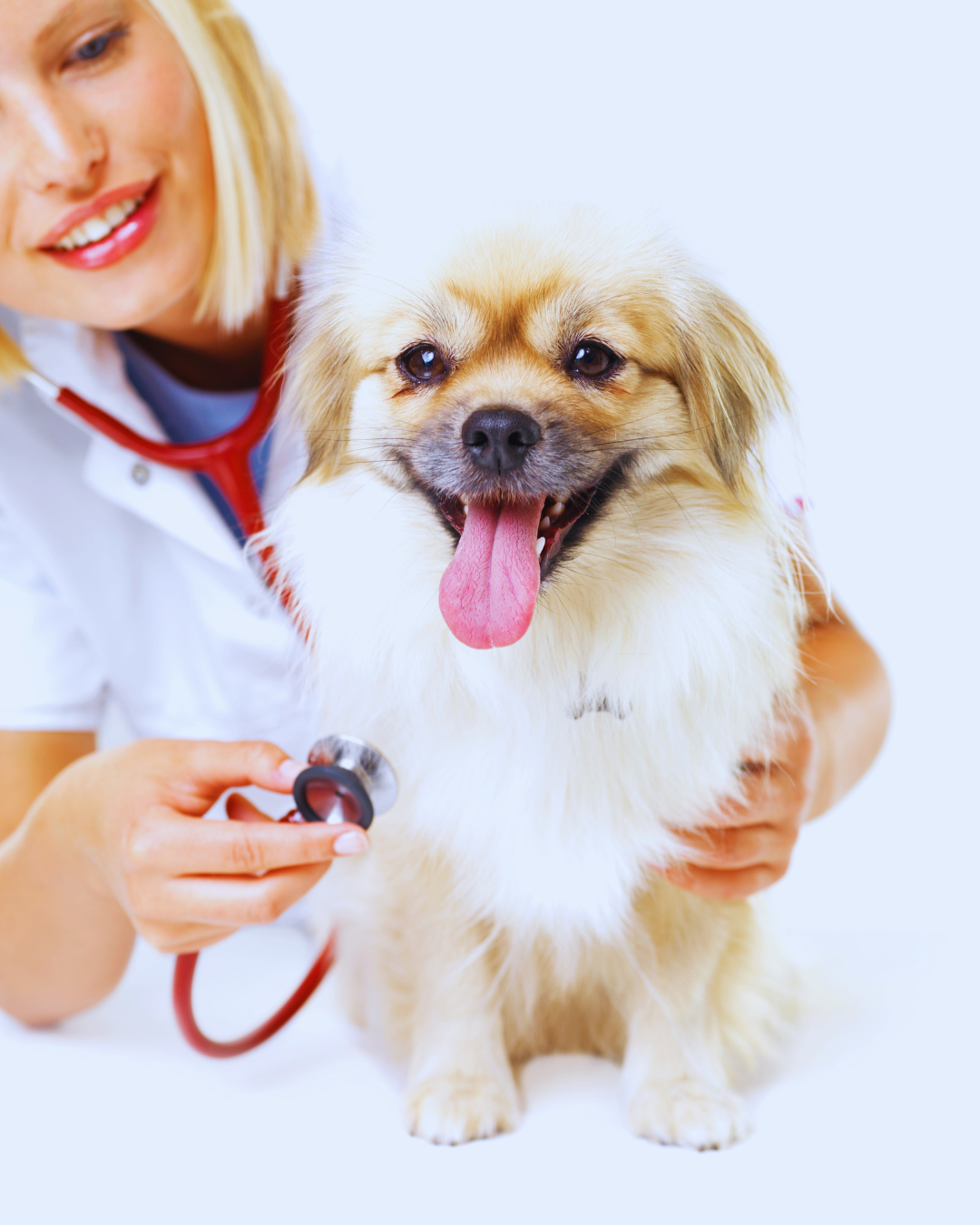
Importance of Regular Vet Check-Ups for Your Pet’s Health and Well-Being
Regular veterinary check-ups play a crucial role in maintaining pet health and preventing potential issues. Routine visits allow for early detection of health problems, ensuring pets lead healthier, longer lives. Responsible pet ownership involves staying proactive about preventive care, which can save owners time, money, and heartache down the line.
During these check-ups, veterinarians assess a pet’s overall well-being, administer vaccinations, and provide guidance on nutrition and exercise. Such consultations are vital for identifying any changes in behavior or condition that may indicate underlying health concerns. This comprehensive approach to care fosters a better understanding of a pet’s specific needs.
By prioritizing regular vet visits, pet owners demonstrate a commitment to their animal’s health and happiness. Engaging in this preventive care not only benefits the pet but also strengthens the bond between the pet and the owner. The peace of mind that comes from knowing one is taking the right steps for their companion’s well-being is invaluable.
The Role of Preventative Care in Pet Wellness
Preventative care is essential in maintaining the overall health of pets. Key measures include regular vet check-ups, vaccinations, and proactive parasite control. These practices can significantly reduce the risk of disease and improve a pet’s quality of life.
Understanding Preventive Care
Preventive care encompasses a range of services aimed at keeping pets healthy and preventing illnesses before they arise. This includes routine exams that allow veterinarians to identify potential health issues early. Owners should bring pets in for check-ups at least once a year, or more often for older animals.
By investing in preventive care, pet owners can help ensure their animals lead longer and healthier lives. Regular assessments can uncover conditions such as dental disease, obesity, or skin issues, all of which are more manageable when detected early.
Vaccinations and Regular Vet Check-Ups
Vaccinations are vital for protecting pets from various infectious diseases. Core vaccines, such as those for rabies, distemper, and parvovirus, should be administered according to a veterinarian’s recommended schedule. Regular vet check-ups complement vaccinations by allowing for thorough physical exams. During these visits, veterinarians may perform blood tests or screenings to assess a pet’s health. Keeping track of vaccination schedules and vet visits is essential for maintaining a pet’s immunity and overall wellness.
Parasite Control Measures
Parasite prevention is a critical component of pet health. This includes protection against fleas, ticks, and heartworms. Flea and tick prevention products should be used year-round to reduce infestation risks.
Additionally, heartworm prevention is crucial, especially in warmer climates. Pets should receive regular deworming treatments as recommended by veterinarians. These measures help prevent parasitic diseases that can lead to serious health complications if left unchecked. Incorporating these preventive strategies helps ensure that pets remain healthy and happy. Regular care lays the foundation for a longer, more enjoyable life for dogs and cats alike.
Early Detection and Management of Health Issues
Regular veterinary check-ups play a crucial role in identifying and managing potential health issues in pets. Through early detection, owners can take proactive measures to ensure their pets lead healthier lives. Each aspect of pet health, from blood testing to dental care, contributes to overall well-being.
Blood Work and Urinalysis in Disease Prevention
Blood work and urinalysis are essential tools for early detection of various health issues. These tests can uncover conditions like diabetes, kidney disease, or liver dysfunction well before symptoms appear.
Routine blood tests measure several indicators, including:
- Complete Blood Count (CBC): Assesses overall health and detects infections or anemia.
- Biochemical Profile: Evaluates organ functions and metabolic systems.
Urinalysis provides insight into urinary tract infections or diabetes by examining the urine for abnormalities. Regular testing helps identify these conditions early, allowing for prompt management, which can lead to better outcomes and quality of life for pets.
Identifying and Treating Age-Related Conditions
As pets age, they become more susceptible to various age-related conditions, such as arthritis, diabetes, and heart disease. Regular vet check-ups help in identifying these problems early on. During visits, veterinarians can assess mobility, weight, and other vital signs. Common signs of age-related issues include:
- Decreased activity
- Difficulty climbing stairs
- Changes in appetite or drinking habits
Early diagnosis of these conditions allows for timely interventions. Treatment may include dietary changes, medications, or supplements to improve comfort and function. Addressing these issues early can significantly enhance the pet’s quality of life.
The Importance of Dental Health Maintenance
Dental health is often overlooked yet critical to a pet’s overall well-being. Regular dental check-ups can prevent dental disease, which affects both the mouth and can lead to systemic health issues. Pets are susceptible to periodontal disease, which can cause pain and tooth loss. Regular cleaning and exams help identify:
- Tartar buildup: This leads to gum disease if untreated.
- Infections: Early detection can prevent the spread of bacteria to vital organs.
Maintaining dental health through routine veterinary visits and appropriate home care is key. This proactive approach supports overall health and can prevent more severe health issues in the future.
Veterinary Care Throughout a Pet’s Life Stages
Proper veterinary care is crucial at every stage of a pet’s life. Each phase-puppy and kitten development, adult maintenance, and senior care-requires tailored veterinary attention to promote health and wellness.
Puppy and Kitten Development
During the early stages of life, puppies and kittens undergo rapid growth and development. Regular veterinary check-ups should start as soon as pets are brought home.
Key aspects include:
- Vaccinations: Essential to protect against diseases like distemper and parvovirus.
- Parasite control: Initiates preventative treatments for worms and fleas.
- Socialization and behavior: Early visits guide training and behavior issues.
Wellness visits during this time set the foundation for a healthy life.
Adult Pet Maintenance
As pets transition into adulthood, their healthcare needs change. Regular check-ups remain vital for maintaining optimal health.
Focus areas include:
- Weight management: Maintaining a healthy weight to prevent obesity-related issues.
- Annual vaccinations: Updates on necessary inoculations to protect from preventable diseases.
- Dental care: Regular dental check-ups to prevent periodontal disease.
These appointments allow for early detection of potential health issues, ensuring a long and active life.
Senior Pet Specialized Care
Older pets often require specialized care to manage age-related health conditions. Regular veterinary visits become even more critical.
Considerations for senior pets involve:
- Chronic disease management: Monitoring for conditions such as arthritis or diabetes.
- Diet adjustments: Ensuring proper nutrition to meet their changing metabolic needs.
- Pain management: Addressing any discomfort that may arise.
Routine assessments allow veterinarians to personalize care plans and provide treatments such as a dog arthritis injection to keep senior pets healthy and comfortable.
Benefits of Regular Veterinary Visits
Regular veterinary visits provide essential insights into a pet’s health and help prevent serious issues. These check-ups offer physical examinations and professional guidance that contribute to the early detection of health problems, giving pet owners peace of mind.
Physical Exams and Professional Guidance
Veterinary visits involve comprehensive physical exams that assess a pet’s overall health. During these exams, veterinarians often check for signs of common issues like heart disease, joint problems, and anemia. These evaluations can lead to early detection of health issues such as heart murmurs or parasitic infections, including heartworms, that could be overlooked.
In addition to examinations, veterinarians provide professional guidance on preventive care, including vaccinations and dietary recommendations. Regular consultations allow for consistent monitoring of health trends over time, enabling timely interventions when necessary. This proactive approach fosters a healthier, longer life for pets and ensures that owners are adequately informed about their pet’s well-being.
Peace of Mind for Pet Owners
Regular veterinary visits offer significant peace of mind for pet owners. Knowing that a pet receives routine check-ups allows owners to feel confident about their furry companions’ health. This reassurance is particularly valuable when issues arise, as early detection can lead to more effective treatments.
Furthermore, veterinary staff can address concerns related to behavior, diet, and preventive care, educating owners on best practices. When owners have access to clear, professional advice, they can make informed decisions regarding their pets’ care. This knowledge helps reduce anxiety and promotes a stronger bond between pets and their owners.
You May Also Like

The Price of Pooches: A Look into the World’s Costliest Canine Breeds
November 30, 2023
10 Pet Care Tips for Pet Owners
December 19, 2022


